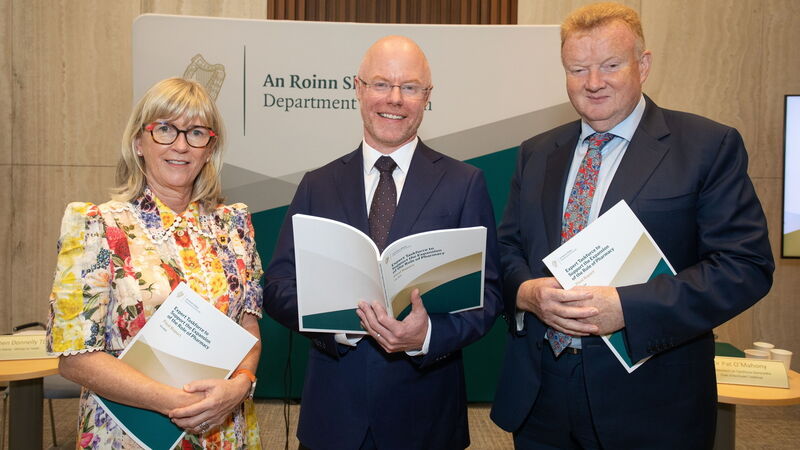Pharmacies will be able to prescribe medicines for eight illnesses next year

(Left to right) Interim Chief Medical Officer Professor Mary Horgan, Minister for Health Stephen Donnelly and Chair of the Expert Taskforce Dr Pat O’Mahony at the the final report of the Expert Taskforce to Support the Expansion of the Role of Pharmacy. The “radical report” comes on the back of the pharmacy sectors’ successful involvement in the covid-19 vaccine programme. Photo: Bryan Brophy/1IMAGE Photography
Patients will be able to get prescriptions for eight illnesses including shingles and urine infections in pharmacies instead of GPs from early next year, the health minister has said.
This means they will no longer have to attend a GP to get treatment for these illnesses. The move is expected to make it faster for patients to get the conditions treated and could also cut waiting times in general practice by reducing patient numbers.










